Graham Reid | | 4 min read
Bob Dylan: Neighborhood Bully (from Infidels)
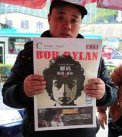
In 1971 -- at the height of the war in Vietnam, the rise of Black Panther activity and the revolutionary spirit sweeping across the US and Europe -- Joan Baez stepped onto a stage in New York and sang a new song. It put her old lover Bob Dylan right in the cross-hairs for him abandoning the peace movement and any political activity.
The song was To Bobby (just in case you didn't get it) and the chorus went, "Do you hear the voices in the night, Bobby? They are crying for you. See the children in the morning light, Bobby, they're dying."
Ironically at that very moment Dylan had recorded his most directly political song in many years, George Jackson, which was released as a single and addressed the killing in prison of the black political activist and writer of that name.
But in the long arc of his career, it was rare political statement by Bob Dylan.
In 1970 Dylan, back after his motorcycle album of '66, was playing what most considered country music and paeans to family life and simple living during a volatile period. But this former "spokeseman for a generation" couldn't have been more clear about his political position.
"People shouldn't look to me for answers," he told biographer Antony Scaduto at the time. "I wasn't going to fall for being any kind of leader. And because I wanted out [the media] all started to rap me.
"But who could live up to that kind of thing? I wasn't into politics. I didn't want any pat of that.
"But the times are tough. Everybody wants a leader . . . I don't know what's going down on campuses, what's in their heads. I have no contact wth them, and I'm sorry they think I can give them any answers. Because I can't. I got enough to keep me busy without looking for other people's problems."
And he was dismissive of radical politics: "It's all bullshit. It's petty."
That same year the self-styled Dylanologist A.J. Weberman started going through Dylan's rubbish bags to find evidence of anything about the way the man thought. He started the Rock Liberation Front and announced "Bob Dylan is now part of the power structure and is a reactionary force in rock . . . Dylan must be dealt with".
They were strange and volatile times.
There was a streetcorner confrontation between Weberman and Dylan in Greenwich Village when Weberman brought an RLF group to Dylan's house to confront him. The following day Dylan invited Weberman over to talk and said, "I don't follow politics".
Weberman said he had betrayed his responsibilities as a cultural hero . . .
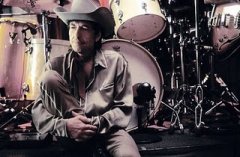 So it goes.
So it goes.
Since his self-titled debut album in March 1962, Bob Dylan has lived through the administrations of 10 US presidents from Kennedy to Obama . . . and he has been conspiciously quiet in nearly all of them, even during the Nixon, Reagan and two Bush administrations.
It is interesting to look back at live footage of him singing It's Alright Ma, I'm Only Bleeding with it's line "sometimes even the president of the United States must have to stand naked".
In the early days this was just another line in a very wordy song and it was only during the Johnson then Nixon eras that it elicited a roar from the crowd. It had taken on a more political meaning for its audience as time went on, the audience perhaps imbuing it with a political meaning Dylan may not have intended? (And no one roared at "propaganda, all is phony" in the same song.)
So given he has barely addressed politics
directly in his songs for decades –and some would argue he never
really did, many of his "protest" songs were oblique – it seemed odd this past month there had been media
comment about Dylan kowtowing to Chinese authorities by not speaking
out about the detention of the artist Ai Weiwei and others, and
allowing them to deny him permission to play certain songs on his tour there.
But that is because some still cast
Dylan in the mould of a political singer. Yet Dylan's “protest
period” lasted just two years in the early Sixties.
Yes, there was George Jackson (a single which has never been re-released and hasn't appeared in the Bootleg Series so far) and Neighbourhood Bully on the Infidels album in '83 had a pro-Israel stance.
(Interestingly on that album Jokerman may have been about Reagan but it was so oblique as to be unclear, and Sundown on he Union was of more than passing political interest, whatever you made of it.)
In '91 during the first Gulf War he snarled out a barely recognisable
Masters of War at the Grammys where he was being given a
Lifetime Achievement award.
But that's been about it.
So his
silence in China was in keeping with his apolitical stance. And he
hasn't been alone in having songs on his setlist denied by the
Chinese, the Stones accepted similar censorship.
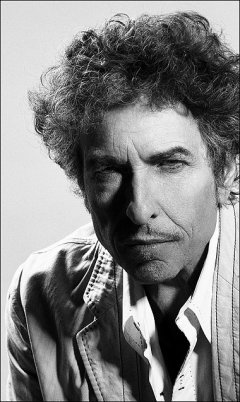 The curious irony about Dylan today is
while he goes forward with new albums, the reissues and Bootleg Series ensure there is much more of his past
in the present, which is perhaps why some prefer to keep him there.
The curious irony about Dylan today is
while he goes forward with new albums, the reissues and Bootleg Series ensure there is much more of his past
in the present, which is perhaps why some prefer to keep him there.
The journalists who raced into print to question Dylan's muteness in China clearly haven't been looking at his career for about four decades. They seem to think he is still that folkie who sang Blowing in the Wind while people held hands and expected social change to sweep the world.
Maybe they would be better deployed writing about human rights in China than looking to an old man for answers . . . because Bob Dylan, nearly 70 at the time of this writing, hasn't been that political person imprinted in Sixties memory for a very, very long time.
And his audience -- to whom he doesn't speak in concert either -- hasn't remained back there either.
For more on Bob Dylan's career, films, albums etc start here and be prepared to lose yourself for while. It has been a long journey.

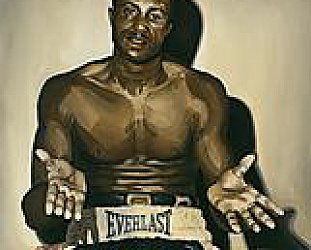
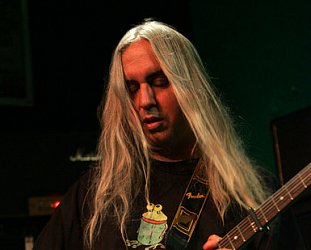
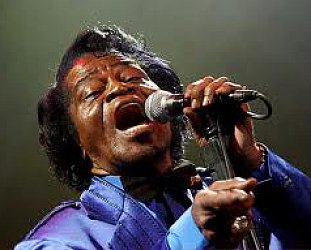

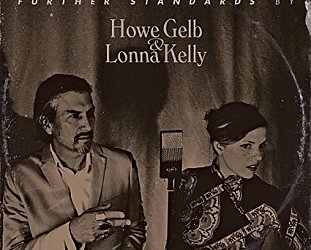
post a comment